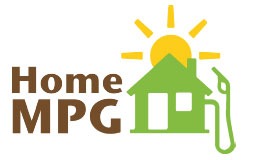What is a Home Energy Scorecard (HES)?
 A home energy scorecard provides home owners and tenants with:
A home energy scorecard provides home owners and tenants with:
- a comparative evaluation of the energy performance of a residence, including an estimate of expected energy consumption and cost based on the home’s physical features (e.g. insulation, HVAC equipment) and “average” occupant behavior (e.g. heating and cooling usage); and is typically accompanied by
- recommendations for energy efficiency improvements to the residence.
Why require the disclosure of home energy scorecards during a home sale?
As a significant energy consumer, the Massachusetts building sector provides substantial opportunity to reduce GHG emissions through energy efficiency. In 2014, the Commonwealth’s residential building sector heating fuel and electric use was responsible for 25.9% of the total GHGs emitted that year.
Home energy scorecards will increase transparency for Massachusetts consumers regarding expected home energy consumptions and associated costs, highlighting homeowner opportunities for energy efficiency improvements and energy bill savings. As a result, scorecards will accelerate cost-effective energy efficiency improvements in existing building stock and encourage better energy performance in new buildings, thereby reducing energy consumption and GHG emissions.
How do I get a scorecard before selling my home?
A standardized, DOER- approved scorecard would be generated with the data collected from the following different types of home energy performance assessments:
- no cost Mass Save® in-home assessment;
- RESNET HERS evaluation;
- U.S. Department of Energy Home Energy Score (HES); and
- other energy assessment by qualified energy assessors, as designated by DOER.
How do I schedule a Mass Save® in-home assessment and complete energy efficiency work?
- Schedule a no cost assessment via 1-866-527-SAVE (7283).
- Receive an assessment within 30 days; with some seasonal variation – 2 weeks during summer months; 6-8 weeks during winter months.
- Scorecards would be produced instantly* after a 2-3 hour assessment, depending on home size.
- Mass Save® auditor can schedule the installation of weatherization measures (see below incentives) within 60-90 days of the assessment via an Independent Installation Contractor (IIC), or you can use Mass Save’s® Find a Contractor tool.
- Instantly receive savings from incentives for insulation & air sealing work. Appliance, heating & cooling equipment rebates are provided within 4-6 weeks of installation of online or USPS submission.
- Instantly receive an updated scorecard.
Weatherization Measures
| Energy Efficiency Measure | Incentives for Market Households >80% state median HH income |
Incentives for Market Households 60-80% state median HH income |
Incentives for Market Households <60% state median HH income; up to $10K/unit |
|---|---|---|---|
| Wall and attic insulation | 75% up to $2000 | 90% up to $3000 | 100% |
| Wireless Thermostats | $50 at audit or $100 rebate for retail | $50 at audit or $100 rebate for retail | up to 100% |
| Programmable Thermostats | 100% if preferred to wireless | 100% if preferred to wireless | 100% |
| Duct sealing (attic) | 100% | 100% | 100% |
| Duct insulation | 75-100% | 75-100% | 100% |
How would I get a scorecard if I live in a Municipal Light Plant (MLP) community?
Many residents of the 50 communities served by 41 MLPs in Massachusetts will have access to scorecards through Mass Save®, via their natural gas company. Residents served by MLPs, who do not use natural gas, have access to similar free home audits through their MLP, primarily via Energy New England and the Mass Municipal Wholesale Electric Company. While the program is not mandatory for MLPs, DOER will provide grant opportunities to MLPs and municipalities to assist with the implementation scorecard programs and energy efficiency incentives.
Why should scorecard disclosure be required before publicly listing my home for sale? Requiring the disclosure of Home Energy Scorecards prior to the listing of a home provides the most transparency to prospective buyers, empowering buyers to make informed decisions regarding home investments. The transparency provided by a scorecard creates a demand-driven market signal for energy efficiency in buildings that encourages consumers to value and invest in energy efficiency.
Will there be any exemptions to the requirement to disclose a scorecard? Yes. Homeowners without reasonable access to an energy assessment or scorecard provided without a fee would be exempt from the requirement to disclose a scorecard. DOER looks forward to engaging with stakeholders during the regulatory process regarding exemptions, including exemptions for certain emergency transactions.
How will scorecards impact low-income residents? Low-income residents will benefit most from increased transparency regarding the energy performance of homes, as energy costs often govern the affordability of a home. Additionally, Massachusetts provides a robust suite of incentives to low-income residents to make energy efficiency improvements – up to $10,000 per household at no cost to the homeowner – and scorecard would capture the value of these improvements for low-income sellers.
Does any other State or Country require Home Energy Scorecards? Massachusetts would lead the nation as the first State in the United States to require the disclosure of Home Energy Scorecards during a home sale; however, Portland, OR, Austin, TX, Santa Fe, NM, and Boulder, CO require energy efficiency ratings and disclosure for different types of construction. Since 2009, Energy Performance Certificates (EPC) have been required in the 28 European Union Member Countries for all buildings and building units sold, rented, newly constructed and renovated, as well as public buildings over 500m2.3 EPCs must be provided to prospective buyers or tenants and included in commercial advertisements regarding buildings or building units for sale or rent.
How will home energy scorecards impact the housing market? We anticipate that MA Home Energy Scorecards and associated home energy efficiency will be valued in the housing market. Literature evaluating the impact of scorecards on the EU housing markets in England, Ireland, and the Netherlands illustrates that more energy efficient homes sell at higher prices – between 1-5% than more inefficient homes.

